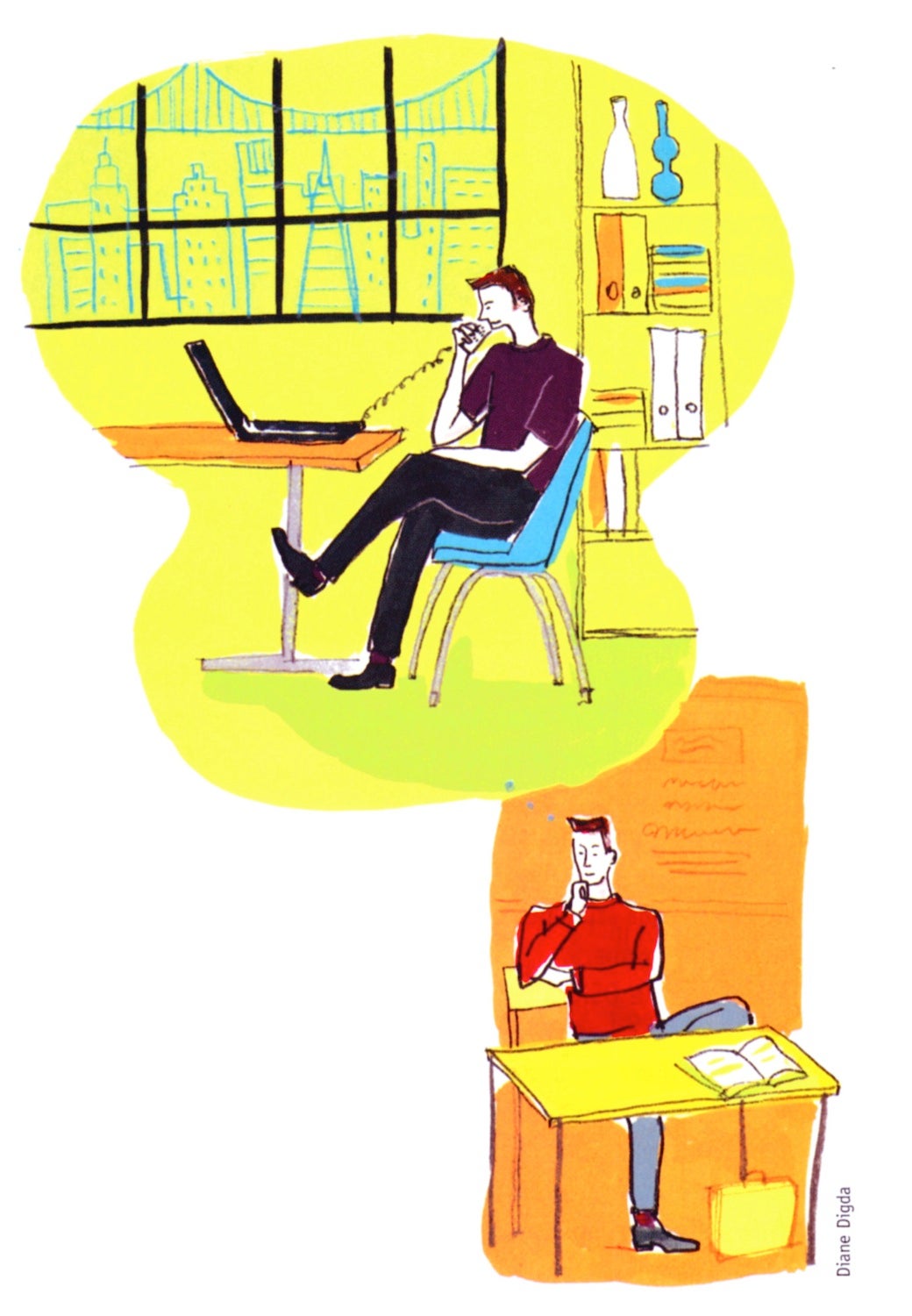Students Go West for New Careers
Sitting in the Charles Hotel’s lobby before yet another job interview, Norm Cappell ’02 imagines the dream job that may await him in San Francisco.
“It’s an exciting place to be,” Cappell said.
For HLS students looking for an entry into the new economy, Silicon Valley and San Francisco firms are the most popular first stop. Visions of laid-back firm cultures and warm weather have made the area a high-demand destination. Now the opportunity to work with high-technology clients has only increased the area’s appeal. And despite a slowdown in the high-tech economy, students sought out California firms in the fall.
“There’s still been strong interest,” said HLS Career Services director Mark Weber, whose office reports that 12 graduates from the Class of 2000 went to work in Palo Alto and 16 went to San Francisco.
Driving the interest is the prospect of working for technology and Internet start-up companies, which students say offer the best opportunities early in their career.
“You get a lot more responsibility early on and a lot more client contact because you’re working with smaller clients,” said Kevin Lee ’02, who worked at Cooley Godward in Palo Alto last summer.
Students say working with young companies exposes them to a broader array of experiences than they would receive at an East Coast firm.
“It’s a better mix of work than you’ll be getting in New York,” said Jamaica Potts ’02, who interviewed with several Bay Area firms in the fall, looking for the right place to combine her undergraduate chemistry degree and interest in emerging biotechnology.
Not every student enters high-tech work with similar focus. According to Susie Elitzky, attorney recruiting manager at Morrison & Foerster in San Francisco, many students say they want a technology or Internet practice but don’t actually understand what that means.
“They want to do technology and intellectual property,” Elitzky said. “I think a lot of students don’t necessarily know what it is, but they throw out those terms and feel like they need to be out here and work with these types of clients.”
But Keith Eggleton, a partner at Wilson Sonsini Goodrich & Rosati in Palo Alto who handles the firm’s law school recruitment, says students are increasingly knowledgeable about the technology firms and new practice areas including licensing and intellectual prop-erty litigation.
Students say they’re also aware of rising California salaries. With San Francisco and Silicon Valley firms paying the same salaries as New York firms, students say they no longer have to sacrifice pay when they move west. Silicon Valley firms that offer attorneys an equity stake in their clients’ companies are particularly attractive to some students.
“It’s very appealing,” said Nadim Homsany ’02, who worked for Wilson Sonsini in Palo Alto last summer. “The amount of money they can make is huge.”
However, San Francisco legal recruiter Martha Fay Africa warns that Silicon Valley jobs aren’t for everyone.
“The environment is not for the faint of heart and not for the person who wants security and not for the person who doesn’t want to work very, very hard,” Africa said.
As a precaution, Potts says she passed over firms that she felt were too dominated by high technology and risky ventures.
“If the market narrowed, those are the firms that would get hurt and lay people like me off,” Potts said.
But most students waiting for interviews in the lobby of the Charles Hotel shrug off the high-tech downturn that dried up venture capital and shut down many dot-coms.
“The technology is not going to go away, and the law is going to have to figure out how to deal with it,” said Bethany Rubin ’02.
